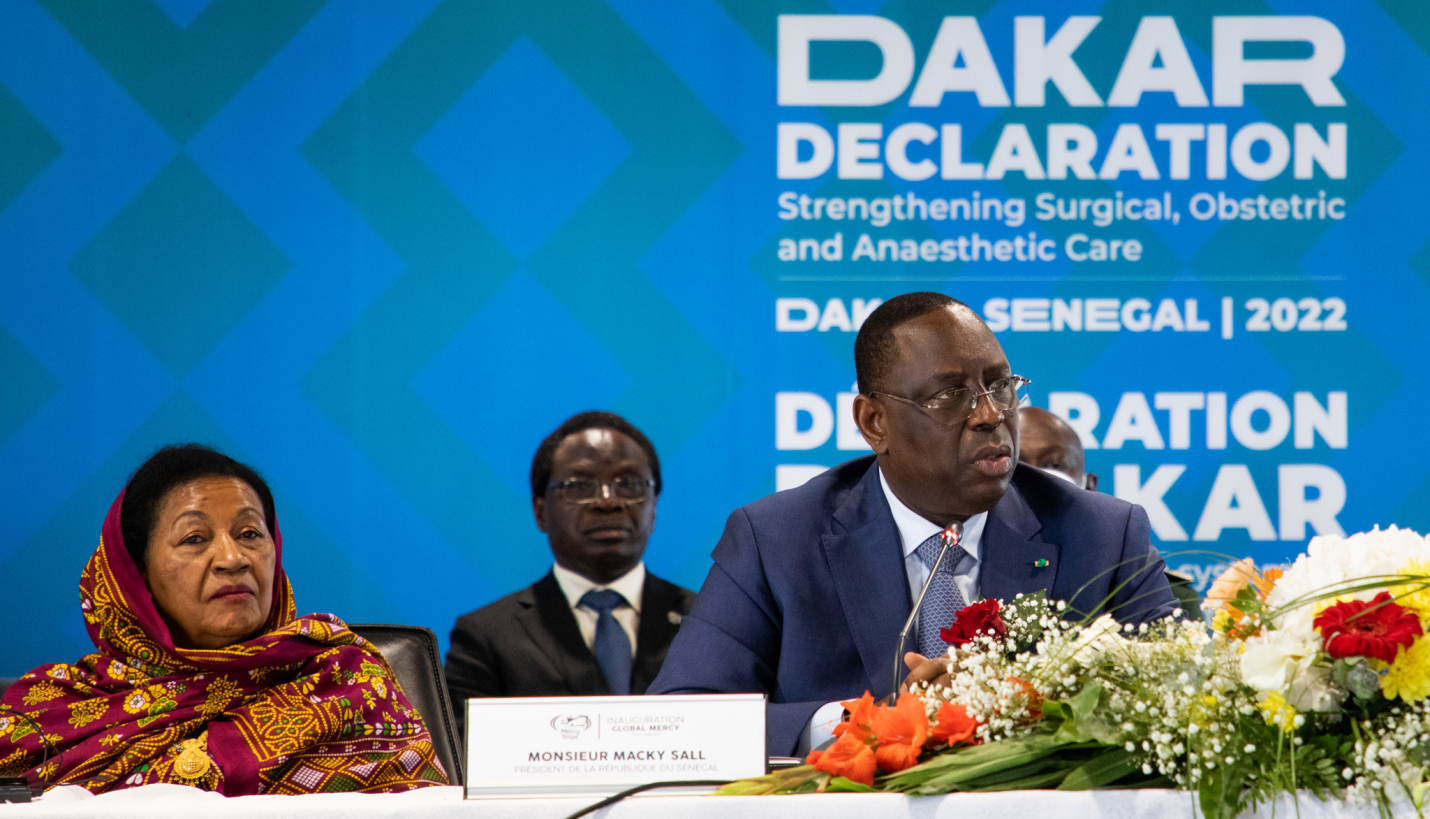Free Courses Sale ends Soon, Get It Now


Free Courses Sale ends Soon, Get It Now



Copyright infringement not intended
Picture Courtesy: mercy-ships-ch.prezly.com
Context: The Dakar Declaration issued by the ministers from the least developed countries (LDCs) outlines their expectations and priorities for the 28th Conference of Parties (COP28) to the United Nations Framework Convention on Climate Change.
Details
|
Key points outlined in the Dakar Declaration issued by ministers from the LDCs for COP28 |
|
|
Urgent Global Emissions Reductions |
●Despite contributing only 1% of global greenhouse gas (GHG) emissions from fossil fuels and industrial processes, LDCs are disproportionately affected by the impacts of climate change. They emphasize the urgency of global emissions reductions to limit global warming to 1.5°C. ●LDCs argue that they bear the least historical responsibility for climate change and are often forced to adapt beyond their capabilities, making them especially vulnerable to the effects of global warming. |
|
Increased Climate Finance |
●Developed countries are called upon to provide a clear roadmap for doubling adaptation finance by 2025 through public, grant-based financing. This is crucial for LDCs to build resilience and adapt to the adverse impacts of climate change. ●The declaration stresses that the current commitment of $100 billion per year to climate finance is insufficient, and a new collective quantified goal on climate finance should be established. This new goal should provide substantially more funding to support climate adaptation and mitigation efforts in LDCs. |
|
Loss and Damage Fund |
●The declaration highlights the importance of a strong outcome that operationalizes the new Loss and Damage Fund. This fund is essential for addressing the irreparable harm and losses caused by climate change, particularly for LDCs. ●It is stressed that the Loss and Damage Fund should consider the specific needs and circumstances of LDCs, recognizing that they are particularly vulnerable to extreme weather events and climate-related disasters. |
|
Global Stocktake |
●LDCs call for an ambitious Global Stocktake to evaluate the collective progress of countries in addressing climate change. This assessment helps identify gaps and areas where further action is needed. ●By conducting a thorough review of global climate action, the Global Stocktake aims to ensure that countries are on track to meet their climate targets and the overarching goal of limiting global warming. |
|
Operationalization of UNFCCC Centralized Carbon Market Mechanism |
●LDCs demand that the UNFCCC's centralised carbon market mechanism be operationalized by 2024. This mechanism plays a role in facilitating international emissions trading and cooperation under the Paris Agreement. ●The declaration emphasizes that the mechanism should take into account the specific needs and special circumstances of LDCs, recognizing that they may require support and capacity-building to participate effectively. |
|
Alignment with 1.5°C Pathways |
●Parties, especially major emitters, are urged to urgently and significantly reduce GHG emissions. This aligns with the goals of the Paris Agreement, which aims to limit global warming to well below 2°C, with efforts to limit it to 1.5°C. ●Countries are also called upon to revisit and strengthen their 2030 targets in their Nationally Determined Contributions (NDCs) to ensure that they are consistent with their fair share of the global effort needed to achieve the 1.5°C goal. |
|
COP28 as an Opportunity |
●The ministers see COP28 as a critical opportunity to accelerate climate action towards the 1.5°C pathways outlined in the Paris Agreement. ●They emphasize that achieving these pathways will require not only emissions reductions but also a transformation in global production and consumption patterns. This underscores the need for systemic changes in how societies produce and consume resources to mitigate climate change effectively. |
Conclusion
Must Read Articles:
Climate Finance: https://www.iasgyan.in/daily-current-affairs/climate-finance#:~:text=It%20generally%20refers%20to%20local,enhancing%20sinks%20of%20greenhouse%20gases.
|
PRACTICE QUESTION Q. What are the key challenges and opportunities in mobilizing climate finance to support developing countries in their efforts to mitigate and adapt to the impacts of climate change, and how can international collaboration enhance the effectiveness of these financial mechanisms? |
© 2024 iasgyan. All right reserved